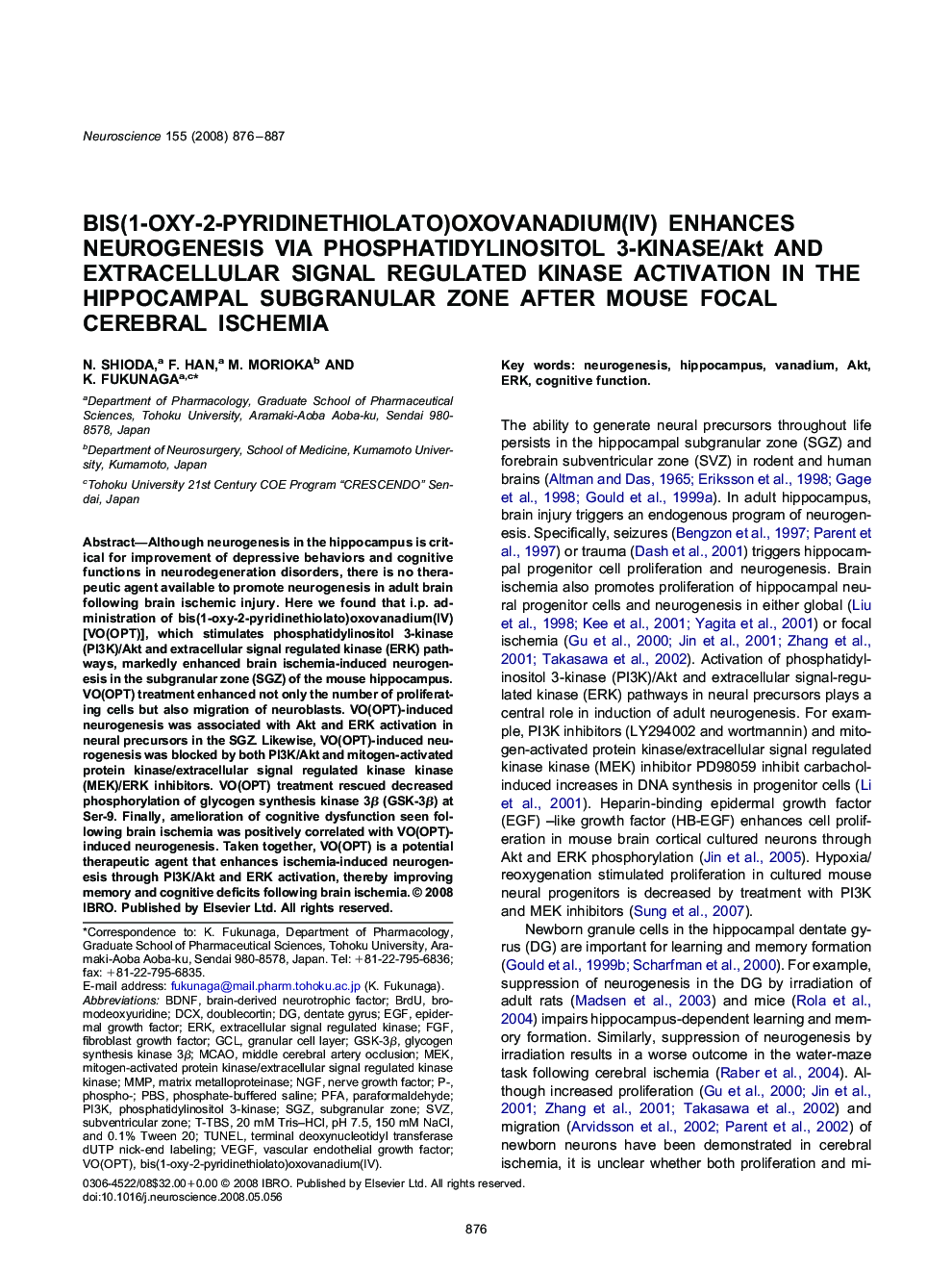| Article ID | Journal | Published Year | Pages | File Type |
|---|---|---|---|---|
| 4340738 | Neuroscience | 2008 | 12 Pages |
Although neurogenesis in the hippocampus is critical for improvement of depressive behaviors and cognitive functions in neurodegeneration disorders, there is no therapeutic agent available to promote neurogenesis in adult brain following brain ischemic injury. Here we found that i.p. administration of bis(1-oxy-2-pyridinethiolato)oxovanadium(IV) [VO(OPT)], which stimulates phosphatidylinositol 3-kinase (PI3K)/Akt and extracellular signal regulated kinase (ERK) pathways, markedly enhanced brain ischemia-induced neurogenesis in the subgranular zone (SGZ) of the mouse hippocampus. VO(OPT) treatment enhanced not only the number of proliferating cells but also migration of neuroblasts. VO(OPT)-induced neurogenesis was associated with Akt and ERK activation in neural precursors in the SGZ. Likewise, VO(OPT)-induced neurogenesis was blocked by both PI3K/Akt and mitogen-activated protein kinase/extracellular signal regulated kinase kinase (MEK)/ERK inhibitors. VO(OPT) treatment rescued decreased phosphorylation of glycogen synthesis kinase 3β (GSK-3β) at Ser-9. Finally, amelioration of cognitive dysfunction seen following brain ischemia was positively correlated with VO(OPT)-induced neurogenesis. Taken together, VO(OPT) is a potential therapeutic agent that enhances ischemia-induced neurogenesis through PI3K/Akt and ERK activation, thereby improving memory and cognitive deficits following brain ischemia.
